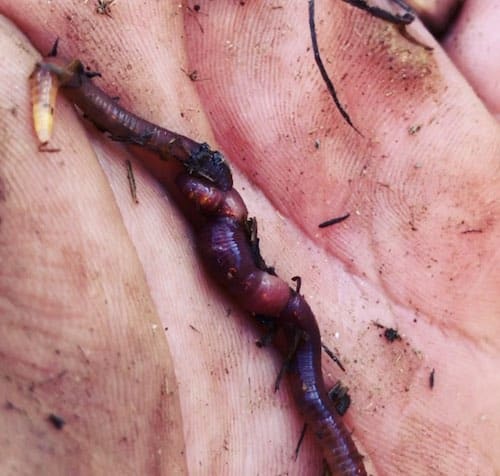Purchase Red Wiggler Worms - Perfect for Composting and Horticulture
Purchase Red Wiggler Worms - Perfect for Composting and Horticulture
Blog Article
Red Wiggler Worms Demystified: Unlocking the Secrets of Vermiculture for Greener Living and Nutrient-Rich Soil
In the realm of sustainable practices for enriching soil high quality and promoting eco-conscious living, red wiggler worms play a pivotal yet commonly ignored role. Red Wiggler Worms. Comprehending the intricacies of caring for these worms, maximizing their atmosphere, and harnessing their spreadings can lead to a greener way of life and much healthier dirt for plants to flourish.
The Role of Red Wiggler Worms
Red Wiggler worms play a vital function in composting systems by successfully damaging down natural issue into nutrient-rich castings. These starved eaters eat a variety of organic products, such as kitchen scraps, yard waste, and paper products. As they feed, the worms' digestion procedures break down the natural matter right into a fine, dark, and nutrient-dense product understood as worm spreadings or vermicompost.
The spreadings produced by Red Wiggler worms are highly advantageous for dirt health and wellness and plant growth. They are rich in vital nutrients like potassium, nitrogen, and phosphorus, which are crucial for supporting healthy plant growth. In addition, worm castings include valuable germs and enzymes that help improve soil structure, rise water retention, and improve nutrient uptake by plants.
Advantages of Vermicomposting

It improves soil structure, boosts soil aeration, and increases dirt wetness retention. Vermicompost also enhances the soil with crucial nutrients like nitrogen, phosphorus, and potassium, promoting plant development and general dirt fertility.
Additionally, vermicomposting supports lasting gardening practices by supplying a all-natural and chemical-free choice to synthetic plant foods. Red Wiggler Worms. This ecologically pleasant method not only improves the soil but additionally aids minimize reliance on unsafe chemicals, promoting a greener and more sustainable way of gardening
Setting Up a Worm Bin
When establishing a worm bin for vermicomposting, proper configuration is vital to make sure the success of the composting procedure. The very first step in establishing a worm bin is picking an appropriate container. This can be a plastic container or wood box that provides adequate area for the worms to walk around and has proper drain openings to stop waterlogging. Next, a bed linen material such as shredded paper, cardboard, or coconut coir need to be contributed to the bin. This bedding supplies a comfortable atmosphere for the worms and helps preserve wetness levels.
After adding the bed linens, present the red wiggler worms to the right here container. The worms need to after that be offered with food scraps such as fruit and vegetable peels, coffee grounds, and eggshells.
Consistently keep track of the dampness degrees and temperature in the worm container to guarantee optimal problems for the worms. With correct setup and upkeep, the worm container will successfully convert natural waste right into nutrient-rich compost for your plants and yard.
Gathering Worm Spreadings
To efficiently gather nutrient-rich worm spreadings from your vermicomposting system, an organized harvesting technique is important. When it comes time to harvest the worm castings, there are a couple of key actions to comply with to ensure an effective procedure. Quit adding fresh food scraps to one side of the worm bin for a pair of weeks before collecting. This urges the worms to move to the side with fresh bed linen and food, making it simpler to scoop out the spreadings from the opposite.

Troubleshooting Common Issues
Determining and resolving common difficulties that may occur throughout the vermicomposting process is important for keeping a efficient and healthy worm bin. One typical problem that vermicomposters encounter is overfeeding. Including excess food scraps can result in a build-up of moisture and acidity in the worm bin, potentially harming the worms. To prevent this, feed the worms in small amounts, making sure that the food scraps are adequately broken down before adding extra. One more problem is unpleasant smells emanating from the worm container. Foul scents suggest anaerobic conditions, commonly brought on by overwatering or poor air flow. To correct this, adjust the wetness levels by adding dry bedding products like shredded newspaper or cardboard and boost oygenation by go to my site turning the bedding consistently.
Furthermore, if the worm population is declining or the worms show up harmful, maybe because of ecological stressors such as severe temperatures or pH levels. Keeping an eye on these variables and making required modifications is vital for the well-being of the worms. By troubleshooting these usual problems immediately, vermicomposters can guarantee a smooth and effective vermicomposting procedure while maintaining a thriving worm populace.

Verdict
Finally, red wiggler worms play a crucial role in vermiculture by breaking down organic matter right into nutrient-rich dirt. The advantages of vermiculture consist of greener living and enhanced soil top quality. Establishing a worm bin is necessary for effective vermiculture, and gathering worm spreadings offers valuable compost for gardening. By understanding and repairing usual concerns, people can open the tricks of vermiculture for lasting living and much healthier dirt.
As they feed, the worms' digestive system processes break down the organic issue into a penalty, dark, and nutrient-dense product understood as worm castings or vermicompost.
The castings generated by Red Wiggler worms are highly useful for dirt health and plant growth. Including excess food scraps can lead to a build-up of moisture and acidity in the worm container, potentially damaging the worms.Furthermore, if the worm population is decreasing or the worms appear undesirable, it might be due to environmental stressors such as severe temperature levels or pH levels. Establishing up a worm bin is crucial for effective vermiculture, and gathering worm castings gives useful garden compost for gardening.
Report this page